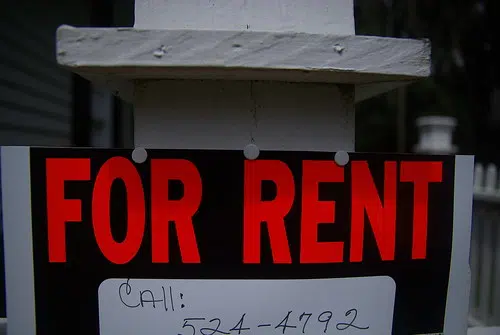Nova Scotia landlords will no longer be able to increase rents by more than two percent per year, said Municipal Affairs and Housing Minister Chuck Porter in an announcement on Wednesday. Landlords will also be unable to evict tenants to do renovations. These measures will be in place until February 2022, or until the state of emergency is lifted. The new rules, made under the Emergency Management Act, are retroactive to September 1.
Porter also announced the formation of an affordable housing commission which will make recommendations to the provincial government going forward.
“Now is not the time for people to be worried about putting a roof over their head or being forced to find a new home for their family. But, unfortunately, that is exactly the situation many people are in,” said Porter.
Whether or not these laws will stay in place post-COVID-19 remains to determined. Porter said the provincial government will reassess the situation as needed.
There have been province-wide calls for rent control in Nova Scotia, and the demands have been getting louder over recent weeks in Halifax. The city has historically low vacancy rates right now, and many landlords have been increasing rents and kicking out tenants in order to do major upgrades and renovations.
In recent weeks, the McNeil government has brushed off requests for such rent control measures, saying that rent control has proven ineffective in other parts of Canada. When asked why government has done a 180 on the issue, Porter replied that “A lot has changed through the period of COVID…”
“It’s taken us some time to get here. I’m not sure if we had put it together six months ago or three months ago if we may have landed in the same place,” said the Minister.
“This is a supply issue, we know that. It’s great that we have immigration and people coming to Nova Scotia; we want to grow…so it’s incumbent upon us, as government to enact something in the interim that will allow the time that’s required by this commission…”
Under the new government order, there is no mechanism for landlords to go about the two percent cap, even if they are facing expensive repairs or rising costs of doing business. If a landlord has already issued a rental increase above the cap, going back to September 1, they will have to give their tenant a credit on an upcoming payment.
It is likely disputes will arise now that renovictions have been outlawed. Prior to Wednesday’s announcement, there was a relatively easy process for landlords to legally evict tenants in order to perform renovations.
“They’re supposed to make an application to the director of residential tenancies,” explained Mark Culligan, who works with Dalhousie Legal Aid Service, in a previous interview with Huddle Today. They need to demonstrate that the repairs that are being proposed are so extensive as to require a building permit.”
But now, according to Porter, the process will be much harder for a landlord to evict a tenant for the sake of upgrades.
“If it has not been ordered by the tenancy board, it will be void. If it has been ordered by the tenancy board, those folks have the opportunity to go back to file their case with the tenancy board to be heard,” said Porter.
If there is an extreme case where major repairs are desperately needed, and it requires the displacement of a tenant, the housing minister expected both parties to work it out.
“These folks are all adults. We’re expecting conversations and agreements to come together to allow that to happen,” said the minister. “Should they not be able to go that route, that’s why the tenancy board is in place and that mechanism to offer dispute resolution.”
Porter was asked, during the conference, why the government isn’t banning all forms of evictions during the pandemic. Porter explained that such a broad law wouldn’t be reasonable.
“It’s not something that I think is possible to do…there has to be a dispute mechanism in place, and I don’t think it’s reasonable just to say: ‘we’re going to ban all evictions,’” he explained. “There are numerous reasons, I think, why evictions may happen, and I think it’s reasonable for tenants and landlords to be able to carry on discussions and try to resolve their issues.”
Here in New Brunswick, the Liberal and Green parties have introduced or plan to introduce rent control legislation.
Derek Montague is a reporter with Huddle, an Acadia Broadcasting content partner.







